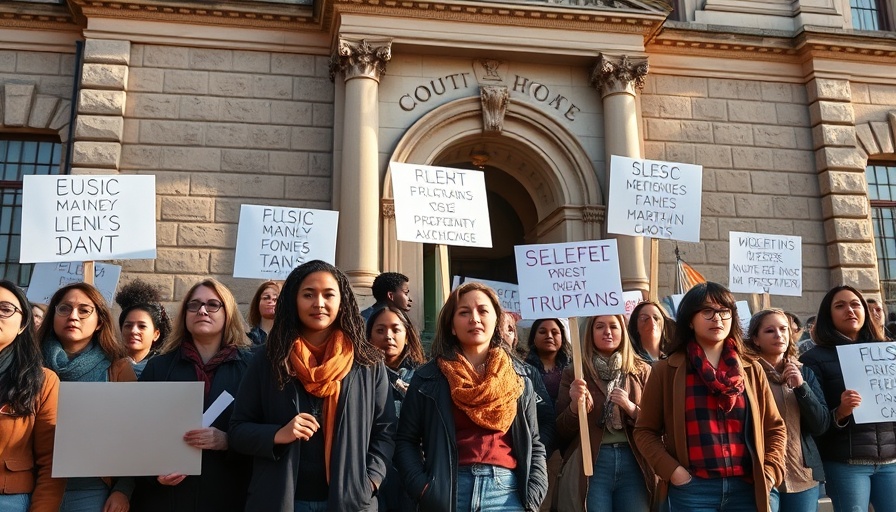
The Arrest of Judge Hannah Dugan: A State of Alarm in the Judicial System
The recent arrest of Milwaukee County Circuit Judge Hannah Dugan has sparked significant alarm within the legal community and beyond. Accused of obstructing immigration enforcement, Dugan allegedly misdirected federal agents during an operation targeting an undocumented immigrant, Eduardo Flores-Ruiz. The implications of her actions extend beyond the courtroom, calling into question the intertwining of judicial responsibilities with immigration laws.
Unraveling the Charges Against Dugan
Federal authorities reported that Dugan obstructed the arrest of Flores-Ruiz, who had previously faced deportation. Dugan's actions, as described by FBI agents, included leading the immigrant and his attorney out of the courthouse through a nonpublic area, ostensibly to prevent his arrest. The fallout from this event has led to a broader discussion regarding the role of judges in immigration cases and how their decisions can impact law enforcement operations.
Judicial Independence vs. Law Enforcement Actions
This incident raises important questions about the balance of power between the judiciary and law enforcement. In a system built on checks and balances, judges are expected to uphold the law impartially. However, Dugan's alleged actions indicate a potential conflict of interest when personal beliefs about immigration could influence judicial outcomes. This case exemplifies the tension that arises in contentious legal areas like immigration, where policy and human rights often clash.
The Reaction from the Community
Following the arrest, a demonstration took place outside the federal courthouse in Milwaukee, where supporters of Dugan and advocates for immigrant rights gathered. Voices were divided, reflecting a larger societal debate over the immigration process and the responsibilities of public officials. Protestors emphasized the need for compassion in dealing with undocumented individuals while others questioned Dugan’s integrity as a judge. This polarization hints at the complex emotions surrounding immigration issues, especially in times of heightened scrutiny.
What This Means for Future Cases
The implications of this case extend beyond Judge Dugan's immediate situation. As the legal system grapples with the ramifications of her alleged obstruction, it sets a precedent that could affect how similar cases are handled in the future. Legal experts suggest that the outcome of this case might influence how judges interact with immigration enforcement in their courtrooms, potentially impacting future decisions in cases involving undocumented immigrants.
Lessons in Accountability
Ultimately, the arrest of Judge Dugan serves as a reminder of the complexity of the judicial role in the face of contentious social issues. Every judge is expected not only to interpret the law but also to act in accordance with its statutes without bias. This incident emphasizes the need for accountability in the judicial system, particularly when personal beliefs might obstruct lawful procedures. How legal professionals navigate these challenges will play a crucial role in upholding the integrity of the judicial system as a whole.
A Call for Reflection in Our Legal System
The events surrounding the arrest of Judge Hannah Dugan compel us to consider the intricate tapestry of law, justice, and the human elements entwined within. As this case unfolds, it is vital for the community to engage in thoughtful discourse about immigration, the role of judges, and the responsibilities that come with wielding judicial power. Are our judges merely arbiters of the law, or do they play a more significant role in shaping social policy? It is through discussions like these that we can seek to affirm justice while honoring our humanity.
 Add Element
Add Element  Add Row
Add Row 



 Add Row
Add Row  Add
Add 


Write A Comment